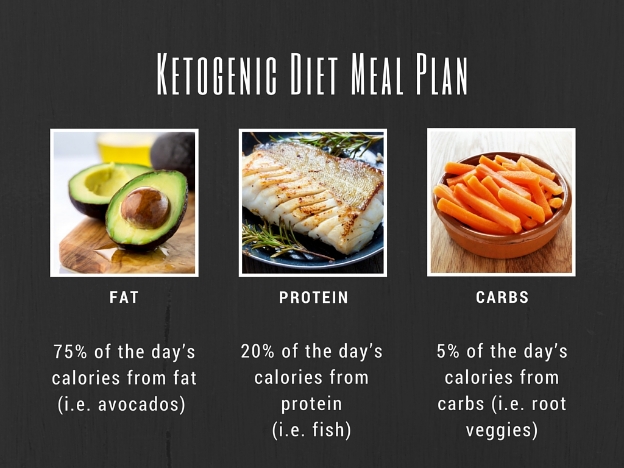In the current fast-paced society, the vast variety of dietary choices can render it challenging to select the right route for health and fitness. Ranging from keto to Mediterranean, and all that lies between, every diet comes with its unique set of promises, benefits, and cons. While trends may offer quick results, mindful eating encourages us to focus on what genuinely supports our bodies. This guide aims to provide insight amidst the noise, helping you navigate through different dietary approaches to find what fits best with your way of life and goals.
Understanding the distinct features of different diets can empower you to make informed choices. Whether you're keen in weight loss, muscle building, or overall health, there's a diet customized for your needs. We will examine popular and fashionable diets, compare them against one another, and delve into their effect on both the body and mental health. By changing the emphasis from limiting eating patterns to mindful consumption, you'll discover a more long-lasting approach to wellness that values enjoyment and nourishment over short-term fixes.

Understanding Well-Liked Diets
In today's health-conscious world, various diets have appeared, all promising diverse gains and methods to nutrition. Among the most well-known are the Keto, Paleo, and Mediterranean-style diets, which have attracted considerable attention for their unique principles. The Keto diet focuses on elevated fat and low carbohydrate intake, asserting to promote weight loss by triggering a state of fat burning. On the flip side, the Paleo diet emphasizes unprocessed foods that reflect the diets of our forebears, promoting animal protein, fish, fruits, and vegetables while eliminating processed foods, cereals, and lactose. The Mediterranean-style diet, praised by nutrition experts, is abundant in fresh fruits, vegetables, whole grains, and beneficial fats, with a heavy concentration on olive oil and balanced consumption of seafood and poultry.
Time-restricted eating is another growing approach that concentrates around meal timing rather than diet. By alternating between periods of consuming food and not eating, many realize that they can regulate their calorie intake and boost their metabolic health. Additionally, plant-based diets, including plant-only diets, concentrate on foods originating from plants, either wholly or predominantly. These diets seek for weight loss but also advocate for sustainability and ethical values when it comes to dietary selections.
All diet carries its own set of pros and cons, shaping how people may react based on their lifestyles and wellness objectives. Targeted diets, such as the Dietary Approaches to Stop Hypertension for those managing heart health, and the FODMAP diet for people with intolerances, underscore the importance of adapting dietary choices to individual health needs. As people investigate these options, comprehending the fundamentals of each diet can help in executing informed decisions about what suits best with their individual goals and lifestyle.
Nutrition Analysis: Which Could Be Best to You?
Picking the best diet involves comprehending your personal objectives, preferences, and lifestyle. If Weight loss diet ’re seeking to lose weight, choices such as the Low-Carb diet, Paleolithic eating plan, and Intermittent fasting can be highly beneficial. All of these diets has its rules and approaches, with the Ketogenic diet emphasizing on high-fat intake, the Paleo diet focusing on natural foods similar to those consumed by humans in the past, and Intermittent eating promoting scheduled eating. Assessing how these diets integrate into one's daily schedule is essential to maintaining lasting results.
When you aim is to embrace a more healthy lifestyle while remaining conscious of the planet, the Mediterranean Diet or Flexitarian eating plans may be good choices. The Mediterranean Diet offers a nutritionally balanced approach rich in nutritious fats, lean proteins, and whole-grain foods, making it easy to adhere to while enjoying a diversity of foods. At the same time, the Flexitarian Diet provides for variation, combining vegetarian eating with intermittent meat consumption. Each diets focus on eco-friendly eating, promoting heart health and contributing to overall well-being.
For those with unique health needs, specialized diets such as the DASH or Low FODMAP diets can be helpful. The DASH focuses to reduce blood pressure and improve heart health, making it suitable for individuals dealing with hypertension. On the other hand, the FODMAP diet assists those with digestive issues by finding and removing difficult-to-digest sugars. Understanding the unique benefits of these eating plans enables you to make informed decisions that match with one's health requirements and dietary choices.
Long-Term Eating Success Tips
Adhering to a nutrition plan long-term necessitates a realistic approach and an awareness of your unique aims. Start by defining realistic, specific goals that align with your daily routine. Instead of extreme changes, introduce small, manageable changes to your dietary practices that you can sustain for the long term. This gradual transformation reduces sensations of lack and helps create a long-lasting diet that works for you.
Developing a community can make a noticeable impact in sticking to your nutrition plan. Communicate your objectives with peers, family, or join a community group that shares comparable nutritional goals. This responsibility can provide motivation and boost when dealing with difficulties. Acknowledging small victories with your support system or keeping track of your advancements can bolster your dedication and enhance your morale.
Finally, be flexible and flexible with your nutrition approach. Circumstances can be unpredictable, and situations may force you to adjust your dietary choices. Instead of seeing this as a setback, accept it as part of your path. Permit yourself occasional splurges without guilt, and discover to manage social environments with grace. Maintaining a healthy mindset about food and your objectives can help you appreciate the process and realize sustained success.
